By Rhea St. JulienImage from the cover of In Utero
At the tender age of 12, I got my period, fell headlong into rock and roll, and unwittingly had my heart broken by the girl of my dreams. Let's start with the body. In a few short months, my skinny frame had grown a layer of downy brown hair over it, my thighs had thickened so fast I had stretch marks, and menarche arrived with such a torrent of muddy red blood that I was sure I had shit my pants. It was just my luck that I was wearing white jean shorts, at the mall, on the way to 5.9.7 from Claire’s. I tripped over my own feet rushing to the bathroom, and got the nib of the pencil I was carrying stuck in the side of my leg, which I can still see in there, 19 years later. It’s a permanent memento of that day, as if I don't already have a reminder every single month.
When I showed my mom my shitty underwear in horror, she threw a pad at me and said, "That's blood. Use this. Shower every day." That was about it. No big "Welcome to Womanhood" speech, no talk of the dreaded word "menses". My mother's unsentimental approach belied how she felt about all things woman-related (including me): they were a hassle. So, I figured it out like I did everything else, with my girlfriends. We tried to fit tampons up there, not knowing to take out the applicator, and having it all kill so bad we gave up and stuck to pads, even though they bulked out our cut-offs.
The one friend that seemed to do just fine with all things lady-bits was Lauren D'Agostino. Her long blonde hair shone as she ran full tilt down the soccer field, leaving all the boys and a few of us girls feverishly fawning in her wake. No matter how close I came, I could never catch her.
We spent hours, the two of us, in her huge attic bedroom, dancing to The Doors and Ugly Kid Joe, trying on outfits for the school dance and talking deeply about our families. The other girls in our clique could not for the life of them understand what Lauren saw in me. I was a perennial misfit, a “freak”, who got straight A’s but also had a permanent seat in the vice principal’s office. I was too everything: too smart, too wild, too loud, too poor, too fast. When Lauren dipped her Venus hand in my direction, inviting me into her inner circle, the collective population of my small town middle school took an inward breath, “HER?!” The girls we shared our lunch table with, who I can just call “The Melissas”, were positive I had stolen my place in Lauren’s BFF photo album from their shinier, worthier visages.
But there I was, despite all odds, feeding horses on her father’s farm and sipping hot chocolate he brought us in steaming paper cups. What no one understood was that since I wasn’t a friend that Lauren needed to keep up appearances with, she could really be herself with me. She was so buttoned-up in the lunchroom, attempting to keep her Queen Bee status, but with me she let herself go, trying out head banging and dressing up with me and another friend like Huey Duey and Louie for Halloween instead of a “sexy witch” like the Melissas.
I knew that I adored her, but I had no idea that I was actually in love with her, until, without a word of explanation, she dropped me. The Melissas were triumphant, noisily whispering throughout the halls about how Lauren and I were no longer, how one of the Melissas (whose name was actually Mary) had dethroned me, and how pathetic I was after all.
Absolutely certain this was all a misunderstanding, I ignored them and called Lauren’s personal telephone line, repeatedly. I imagined it ringing, pink and perfect on her trundle bed, and willed her to answer. But she never did. I wrote long missives about our friendship and how much I missed her, reminding her of all the fun times we’d had together, but there were no return notes from Lauren in my locker. She never spoke to me again. The following year, she headed off to a private Catholic school, so I blissfully did not have to see her beautiful face any longer, and be reminded of my unrequited love.
The truth is that while Lauren may have been more of herself with me, I was less and less of myself with her. I was so desperate to hold on to her that I contorted myself into her mold, pretending I liked 50’s-style boy-girl sock hop parties and banal trips to the mall, like the fated one where I bloodied my underwear for the first time. So, once Lauren broke my little 12 year old heart like a slinky stretched too far, I was free to explore my darker tendencies.
I found myself in Mystery Train Records, eyeing cassettes and CDs through my growing-out bangs, which I had to keep tossing back with a flip of my head in order to see the cover art. Music, particularly the “alternative rock” that was pouring out of Seattle at that time, fed the painful part of me that was sore over losing Lauren, and humiliated over proving the Melissas right. If had to be a loser like they thought I was, I was going to fucking rock out.
That Fall, Nirvana released In Utero, and I got on the Kurt Cobain train right before it was blown to pieces by his shotgun. With Heart Shaped Box on repeat, I yelped along, “Broken hymen of 'Your Highness', I'm left black/Throw down your umbilical noose so I can climb right back”. I couldn’t consciously conceive of the fact that I was wishing I had broken my dear highness’s hymen myself---I sub-knew it. The fact that I didn’t just miss Lauren or want to be her like the Melissas did, but actually wanted to be in her, and rub my hands up her blondy legs was never stated, not even in my reams of diaries. Instead, I howled along to Hole, Pearl Jam, and Stone Temple Pilots in my room 3 streets away from Lauren, hoping she would hear me, pick up the phone, and ask me to crawl back into the folds of velvet-girl goodness that I was nearly received into.









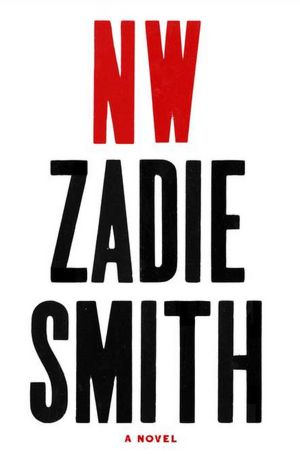
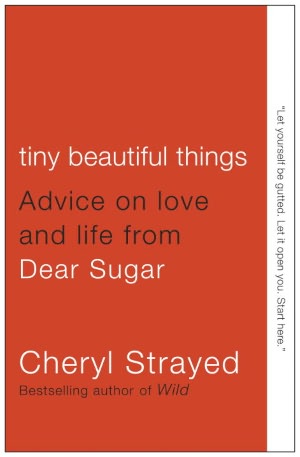
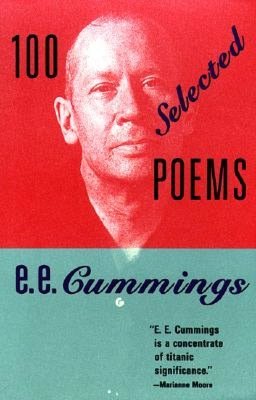








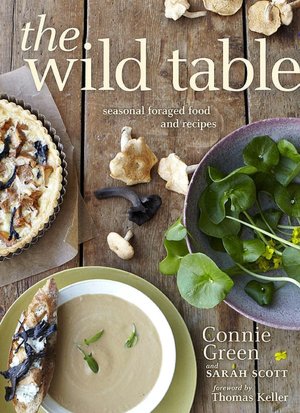




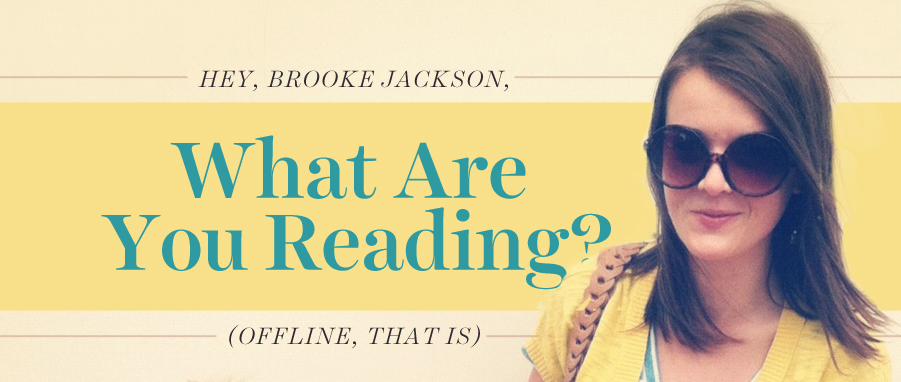
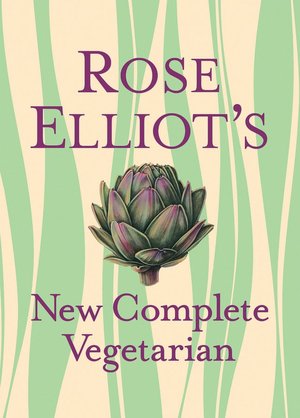 New Complete Vegetarian
by: Rose Elliot
I've been a vegetarian for half of my life and had to get creative in the kitchen after marrying my husband. Cooking meatless meals for someone who enjoys a medium rare steak has its challenges. In order to keep peace at our dining table, I read recipes to learn more about different flavor combinations and cooking techniques. Rose Elliot's New Complete Vegetarian was given to me as a gift, and I'm currently drooling over its every page. With over sixty books under her belt, Rose is Britain's most influential vegetarian/vegan writer. Her ingredients and words are so engulfing you can actually smell the aromas of each course being prepared. This particular cook book contains hundreds of mouth-watering recipes covering a hostess' every need: sweet relishes and tangy salad dressings; veggie infused pastas and rice; made-from-scratch tarts and cheesy quiches; and delectable desserts. Rose's ingredient lists are short and simple which works well for both the intimidated beginner cook or the expert chef. Whether you follow a recipe step-by-step or put your own unique spin on it, this book is the perfect cooking companion.
New Complete Vegetarian
by: Rose Elliot
I've been a vegetarian for half of my life and had to get creative in the kitchen after marrying my husband. Cooking meatless meals for someone who enjoys a medium rare steak has its challenges. In order to keep peace at our dining table, I read recipes to learn more about different flavor combinations and cooking techniques. Rose Elliot's New Complete Vegetarian was given to me as a gift, and I'm currently drooling over its every page. With over sixty books under her belt, Rose is Britain's most influential vegetarian/vegan writer. Her ingredients and words are so engulfing you can actually smell the aromas of each course being prepared. This particular cook book contains hundreds of mouth-watering recipes covering a hostess' every need: sweet relishes and tangy salad dressings; veggie infused pastas and rice; made-from-scratch tarts and cheesy quiches; and delectable desserts. Rose's ingredient lists are short and simple which works well for both the intimidated beginner cook or the expert chef. Whether you follow a recipe step-by-step or put your own unique spin on it, this book is the perfect cooking companion.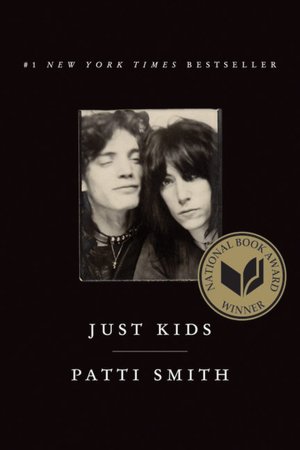 Just Kids
by: Patti Smith
Just Kids is a memoir written by Patti Smith, the “Godmother of Punk.” I could try to summarize this book, but there is so much happening that I can't put my finger on one specific premise. It's an ode to art and music, personal expression and exploration, and companionship and love. Smith moved to New York City during the summer of 1967. It was at the end of a few artistic eras such as the Beat Generation and the Warhol Factory Years, so Smith found herself riding on the coattails of many fascinating artists. Searching for her own masterpiece, she made a vow that her life would be dedicated to creating and sharing her work. On that very night, Robert Mapplethorpe, who is now an iconic photographer, made the same promise to give himself to his art. Later on, while Smith was working at Brentano’s Books on Fifth Avenue, the two crossed paths and quickly became each other’s artistic guide and muse. They searched together while creating, painting, filming, writing, and capturing life. Smith and Mapplethorpe were young artists or "just kids" on the verge of both breakdown and breakthrough. They experimented their way through the late 60's and lived on the forefront of their wildest dreams. During her time at the Hotel Chelsea, Patti also met some of my favorites such as Jimi Hendrix, Bob Dylan, Allen Ginsburg, and Andy Warhol. NYC has always been a melting pot of sensations with a variety of people who have big dreams and enduring stamina. Smith's descriptions are so poetically vivid that I found myself channeling her words as if they were my memories she recanted, constantly dropping the book to close my eyes and breathe. Hooray for empathy! Pick up this book, please!
Just Kids
by: Patti Smith
Just Kids is a memoir written by Patti Smith, the “Godmother of Punk.” I could try to summarize this book, but there is so much happening that I can't put my finger on one specific premise. It's an ode to art and music, personal expression and exploration, and companionship and love. Smith moved to New York City during the summer of 1967. It was at the end of a few artistic eras such as the Beat Generation and the Warhol Factory Years, so Smith found herself riding on the coattails of many fascinating artists. Searching for her own masterpiece, she made a vow that her life would be dedicated to creating and sharing her work. On that very night, Robert Mapplethorpe, who is now an iconic photographer, made the same promise to give himself to his art. Later on, while Smith was working at Brentano’s Books on Fifth Avenue, the two crossed paths and quickly became each other’s artistic guide and muse. They searched together while creating, painting, filming, writing, and capturing life. Smith and Mapplethorpe were young artists or "just kids" on the verge of both breakdown and breakthrough. They experimented their way through the late 60's and lived on the forefront of their wildest dreams. During her time at the Hotel Chelsea, Patti also met some of my favorites such as Jimi Hendrix, Bob Dylan, Allen Ginsburg, and Andy Warhol. NYC has always been a melting pot of sensations with a variety of people who have big dreams and enduring stamina. Smith's descriptions are so poetically vivid that I found myself channeling her words as if they were my memories she recanted, constantly dropping the book to close my eyes and breathe. Hooray for empathy! Pick up this book, please! Thin Air: Encounters in the Himalayas
by: Greg Child
A few months ago, I read the story of Jon Krakauer's experience on one of Mount Everest's most fatal seasons and have been semi-obsessed with Himalayan adventures ever since. I love every aspect of it: the physical challenges the human body endures to climb these peaks; the devotion and sometimes detrimental commitment of mountaineers to reach the highest places on Earth; and the emotional and mental battles that altitude, stress and ego add to the journey. After listening to me share stories of the Himalayas as though I was part of the trek myself, a friend gave Thin Air to me. The book sweeps you away into a range of breath-taking mountains while sharing some of the most riveting stories of Himalayan treks. One feels the roller coaster of excitement, the heartache from the innate barriers of being in politically delicate regions of the world to fulfill their dreams, the language struggles existing in crucial relationships, the undefinable joy of reaching their goals, and the bonding and loss of friends. I highly recommend this read for those who are seeking an adventure in life.
Thin Air: Encounters in the Himalayas
by: Greg Child
A few months ago, I read the story of Jon Krakauer's experience on one of Mount Everest's most fatal seasons and have been semi-obsessed with Himalayan adventures ever since. I love every aspect of it: the physical challenges the human body endures to climb these peaks; the devotion and sometimes detrimental commitment of mountaineers to reach the highest places on Earth; and the emotional and mental battles that altitude, stress and ego add to the journey. After listening to me share stories of the Himalayas as though I was part of the trek myself, a friend gave Thin Air to me. The book sweeps you away into a range of breath-taking mountains while sharing some of the most riveting stories of Himalayan treks. One feels the roller coaster of excitement, the heartache from the innate barriers of being in politically delicate regions of the world to fulfill their dreams, the language struggles existing in crucial relationships, the undefinable joy of reaching their goals, and the bonding and loss of friends. I highly recommend this read for those who are seeking an adventure in life.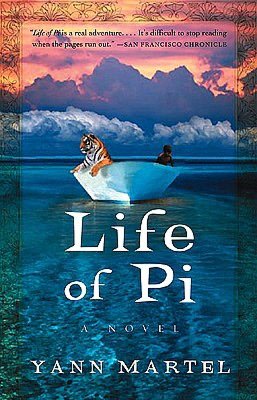 Life of Pi
by: Yann Martel
This is the story of a boy named Pi, who leaves India with his family to find a new life in Canada. While at sea, tragedy strikes and the unthinkable happens: Pi is the lone human survivor of a shipwreck and is stranded aboard a small lifeboat with an unusual assortment of companions. His only companions consist of a hyena, zebra, orangutan and Bengal tiger. Pi's courage and determination are tested as he must learn to survive on his own in the vast ocean while keeping the distraught wild animals at bay. Pi's story is one of hope, courage and self-preservation in the most unnatural of circumstances.
Life of Pi
by: Yann Martel
This is the story of a boy named Pi, who leaves India with his family to find a new life in Canada. While at sea, tragedy strikes and the unthinkable happens: Pi is the lone human survivor of a shipwreck and is stranded aboard a small lifeboat with an unusual assortment of companions. His only companions consist of a hyena, zebra, orangutan and Bengal tiger. Pi's courage and determination are tested as he must learn to survive on his own in the vast ocean while keeping the distraught wild animals at bay. Pi's story is one of hope, courage and self-preservation in the most unnatural of circumstances. Killing Lincoln<
by: Bill O'Reilly & Martin Dugard
This summer I brushed up on my American history by reading Killing Lincoln. I´m sure that sounds like a dreaded 11th grade required reading assignment, but I promise this book is not what you think. There will be no exam afterwards and, unlike me, you probably won´t be asked to write a synopsis of what you´ve read. Yes, it is the true story of the Lincoln assassination in 1865, but it's also a thriller told from the perspective of both the assassin and the victim. As we all know, John Wilkes Booth was the man who shot the President. But what else do you know about him? This book takes you inside his world and details his thoughts, relationships and movements, especially in the days leading up to the murder and the days immediately following. Lincoln, on the other hand, becomes a character that you wish didn´t have to die as you are also taken away from John Wilkes Booth and into the White House to witness his conversations and fears in the days leading up to his fateful trip to the Ford theater. I found myself hoping that history would somehow rewrite itself and only wish more historic events were written this way.
Killing Lincoln<
by: Bill O'Reilly & Martin Dugard
This summer I brushed up on my American history by reading Killing Lincoln. I´m sure that sounds like a dreaded 11th grade required reading assignment, but I promise this book is not what you think. There will be no exam afterwards and, unlike me, you probably won´t be asked to write a synopsis of what you´ve read. Yes, it is the true story of the Lincoln assassination in 1865, but it's also a thriller told from the perspective of both the assassin and the victim. As we all know, John Wilkes Booth was the man who shot the President. But what else do you know about him? This book takes you inside his world and details his thoughts, relationships and movements, especially in the days leading up to the murder and the days immediately following. Lincoln, on the other hand, becomes a character that you wish didn´t have to die as you are also taken away from John Wilkes Booth and into the White House to witness his conversations and fears in the days leading up to his fateful trip to the Ford theater. I found myself hoping that history would somehow rewrite itself and only wish more historic events were written this way.




